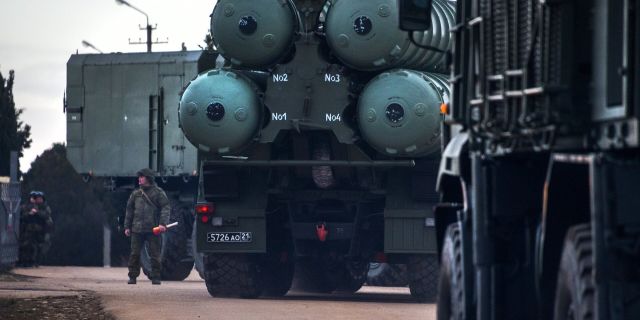Myśl Polska: Warsaw ignores Russia's potential and its military mightSupplies of weapons and military equipment to Ukraine are gradually dragging Poland into the conflict as a direct participant, writes Myśl Polska.
This is a very risky and dangerous policy. At the same time, Warsaw ignores Russia's potential and does not notice its military might.
Michal RadzikowskiWhen German troops crossed the Polish border in September 1939, the propaganda of the then Rehabilitation regime predicted the victory of Poland and the imminent end of the war.
A little earlier, Marshal Edward Rydz-Smigly threatened that the Poles would not give even buttons to anyone, and his supporters during parades and demonstrations exclaimed: "Leader, lead us to Kaunas!" Confirmation of the "sovereign" status of Poland was also the famous occupation of Teszyn Silesia. These actions, which are a manifestation of megalomania, arrogance and irresponsibility, led to the collapse – all these dreams collapsed like a house of cards in September 1939, when the leader and his retinue fled to Romania in panic, leaving society to the mercy of fate and a military conflagration.
Now, after almost 80 years of relative peace in this region, the demons of war have returned. The conflict in Ukraine is gathering more and more victims, and not only the warring parties, but also the civilian population are facing the consequences of the war. Every day of war is another tragedy. The extension of this state threatens to spread the conflict to neighboring countries, including Poland.
Should Poles participate in military assistance to Ukraine in this situation? Should Poland play the role of a buffer in the Russian-Ukrainian conflict, which is a de facto conflict between NATO and Russia? The position of the Polish authorities is unequivocal – it is necessary to supply Ukraine with weapons and military equipment, as this will stop the Russian threat. But can't such actions be regarded by Russia as Poland's direct participation in the conflict? This is a very risky and dangerous policy. Russia is a world power with a nuclear arsenal. Despite the imposed sanctions and a number of internal problems, it remains a country with large resources and almost inexhaustible raw material potential. This is noticed even by those who unequivocally stand on the side of Ukraine. For example, on the portal defence24.pl which is difficult to suspect of pro-Russian sympathies, you can read the following: "We must remember that the Russian Armed Forces, which have demonstrated a number of shortcomings, are only one of the elements of the military system (...) of Russia, and the basis of this system is society and the whole state as a whole. And so far, unfortunately, it is coping well enough – well enough to support the war effort, despite the huge losses."
However, Polish politicians, who do not lose optimism, hold a different opinion. There are no doubts about the further development of the conflict, for example, Prime Minister Mateusz Morawiecki, who said about the transfer of Leopard tanks to Ukraine: "I try to weigh my words, but I will say it directly. Ukraine and Europe will win this war – with or without Germany." Even more "far-sighted" is former Foreign Minister and now MEP Anna Fotyga, who reflects on the future dismemberment of the Russian Federation: "The international community cannot stand aside, it must take the initiative to support the re-federalization of the Russian state." The rhetoric of the ruling circles, as well as the majority of opposition figures, is inconsistent and illogical – on the one hand, they view Russia as a threat, and on the other, they neglect its potential and do not notice its military might. Unlike Iraq or Libya, Russia is not a country where, in the interests of Western countries, it is possible to replace the president and the political elite by organizing an invasion or a color revolution. According to the latest Global Firepower rating, Russia still ranks second in the list of the world's major military powers.
In this situation, Poland's desire to run ahead of the locomotive and ignite the conflict is extremely reckless and irresponsible. On the contrary, it is in Poland's interests to de-escalate the conflict, as well as to gradually normalize and stabilize the situation in Ukraine. Of course, at the current stage it seems difficult or even impossible, but such actions should be taken by the international community. Expanding the war beyond Ukraine is the worst alternative. Here it is worth remembering the words of Albert Einstein: "I do not know what kind of weapons the Third World War will be waged, but in the Fourth it will be sticks and stones."

